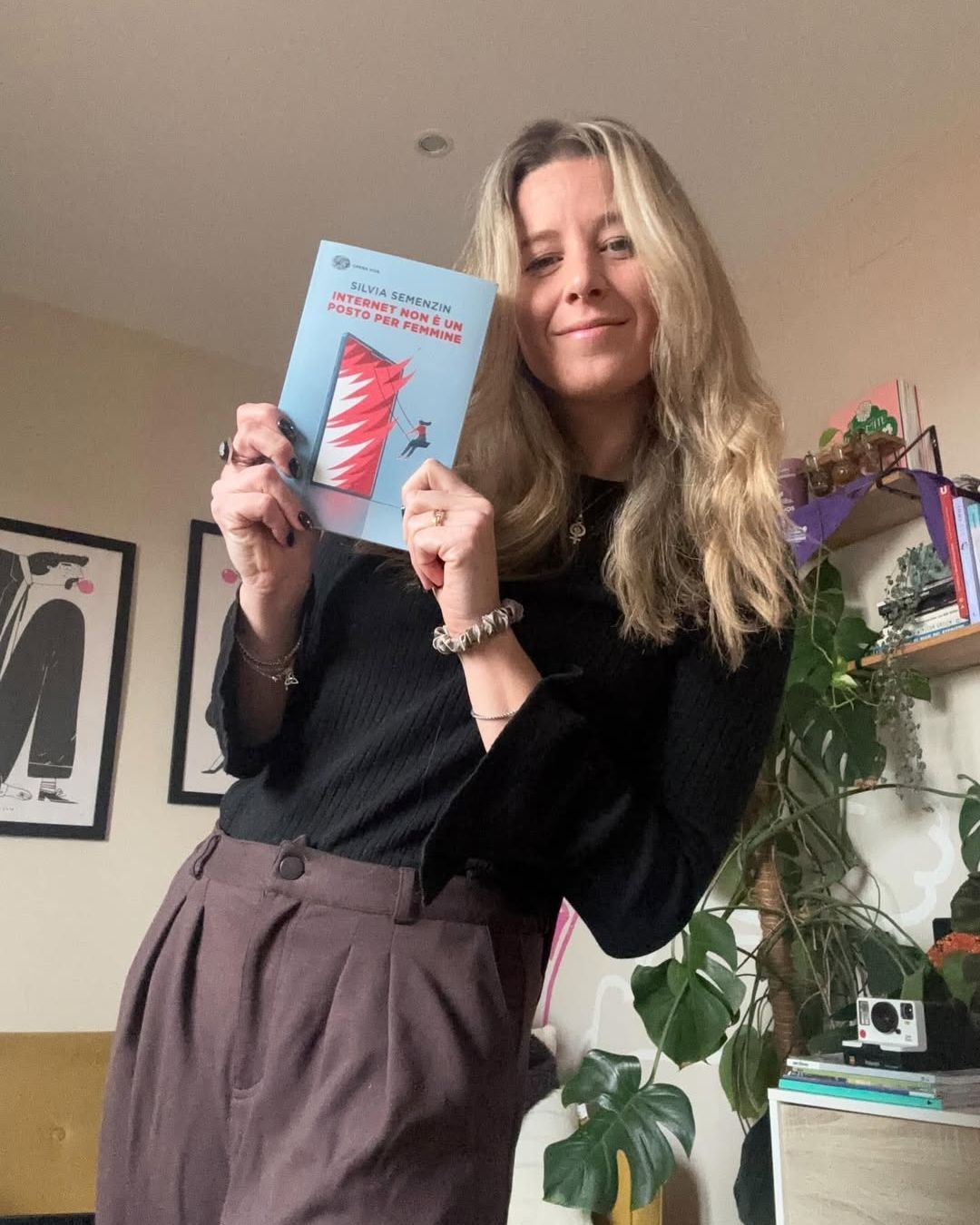
The rise of Mia Khalifa in the fashion industry And the transformative power of post-scandal
According to FW23 statistics, analyzed in Karla Otto and Lefty's report analyzing the performance of influencers during fashion month, ex-porn star Mia Khalifa ranked fifth most successful, achieving an EMV - Earned Media Value, the equivalent advertising spend of the impressions gained - of $7.6 million. Surpassing the likes of Chiara Ferragni, Kylie Jenner, and Zendaya, Khalifa made a triumphant entry into the world of fashion, winning the title of Emerging Influencer of the Year in 2022. But how do you explain this success, knowing her career was cut short years ago?
Born in Bejrut, Khalifa immigrated to the United States as a child, starting middle school just after the tragic attack on the Twin Towers. Her Lebanese origins and her physical appearance - she used to be severely overweight - made her a favorite target of her classmates, who bullied her for years. This was precisely the cause of her insecurities, what Khalifa says drove her towards hyper-sexualizing her body in the years to come. Interviewed by Alexandra Cooper on the podcast Call Her Daddy, Khalifa recounted the beginning of her life as a porn star and cam-girl, a career she had to interrupt after only a few months, following numerous death threats she received, including from ISIS. Severely traumatized by this, Khalifa disappeared from the public scene for three years while finding work as a legal assistant and accountant. The actress describes those years as the worst of her life, as she found herself alone and isolated from family and friends and without a salary that would guarantee her a peaceful life. «Shame is the most powerful emotion a human being can feel,» she said during the interview, «it's paralyzing, debilitating, it can change the way you look at yourself and others.»
With time, the fear she felt subsided, motivating her to start talking about her career once again. Surprisingly, social media was on her side. Igniting debates about the dangers of working in the porn industry and the stigma the public has for sex workers, Khalifa returned to the spotlight. She now has 27.5 million followers on Instagram, a popularity that has led her around the world to collaborate with high fashion brands. Moschino, Acne Studios, Diesel, and Heliot Emil.
@callherdaddy WEDNESDAY. @miakhalifa #callherdaddy #daddygang original sound - Call Her Daddy
Khalifa is now an influencer in her own right, and is about to launch a jewelry brand called Sheytan, Arabic for "devil" or "evil spirit." As she also explains, her renewed image is still a work in progress, a rebranding that, instead of being written behind the scenes, happens in plain sight for all to empathize with her and her story. Interviewed by Karla Otto, Khalifa explained why, in her opinion, her social content is met with so much approval. «I'm not sponsored to go to shows; the brands I work with are chosen by me because I love what they do,» she said, «as a result, I think the content that I post is authentic and my audience notices, they see me squealing with delight at moments like Heliot Emil's man on fire - I enjoy myself and I think that shows.»
Invest in yourself and bet on yourself…. It’s terrifying but it pays off https://t.co/nukAmVAeYN
— Mia K. (@miakhalifa) March 2, 2023
Popular fairy tales and modern cinematography have long portrayed strong women depicting female emancipation as achievable only after overcoming dark times; after all, if Cinderella made the prince fall in love, it was precisely because of the humility she learned during her enslavement, as well as her golden curls and bewitching smile. It is therefore easy to see why Khalifa is so popular; apart from being beautiful and charming, her story resonates with themes of redemption. «When you hear the name "Mia Khalifa" you have this stigma about her,» wrote one YouTube user commenting on Call Her Daddy's interview, «after listening to her interview, you realize she is so smart.» As if there was any surprise in discovering that even women who instrumentalize their sexuality for work have feelings.

























































